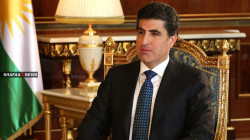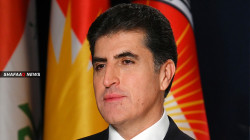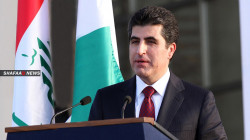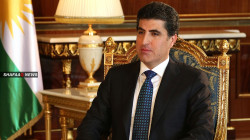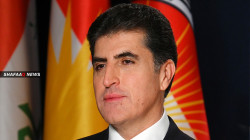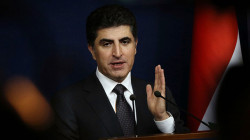Nechirvan Barzani and UK Ambassador emphasize Kurdistan elections importance"
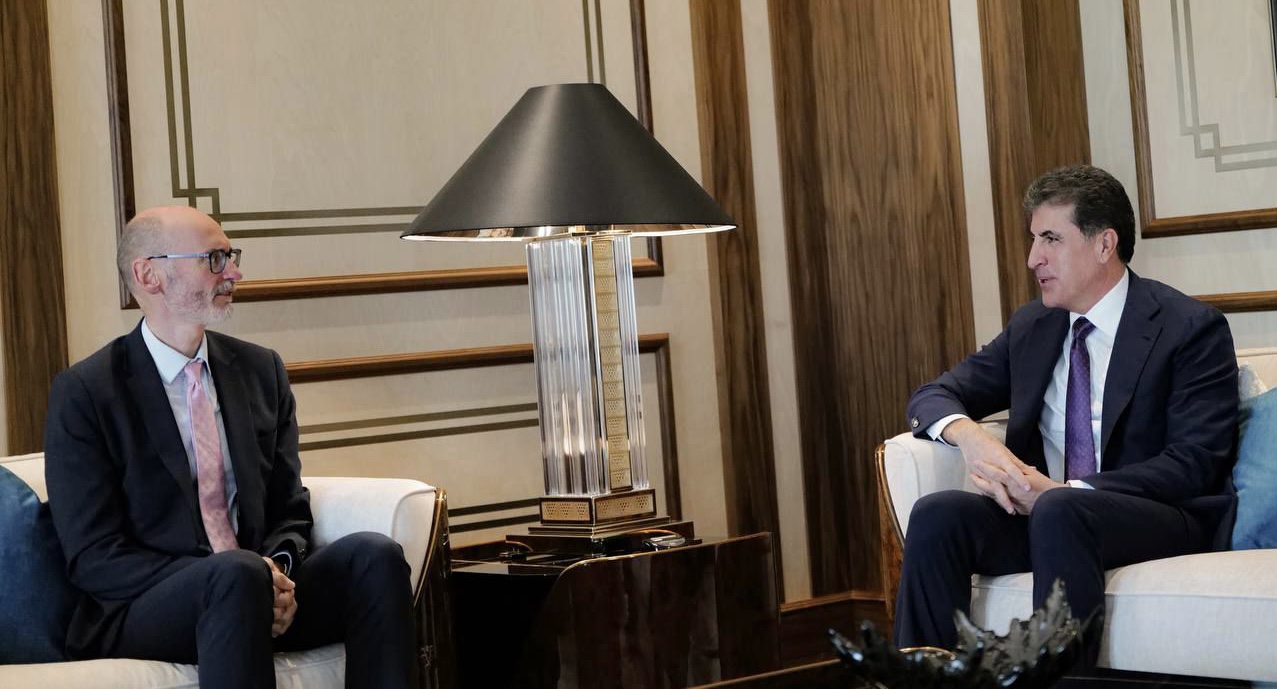
Shafaq News / President of Kurdistan Region (KRI) Nechirvan Barzani and the British Ambassador to Iraq Stephen Hitchen emphasized on Wednesday the importance of holding parliamentary elections in the Kurdistan Region and resolving issues with Baghdad through dialogue.
The two sides discussed “parliamentary elections, the internal situation in Kurdistan, and the Erbil-Baghdad relations.”
Both parties emphasized the “importance of holding elections and discussed the sensitivity of the situation, highlighting the necessity of resolving problems and disputes among political parties to overcome challenges.”
They agreed that “problems between Erbil and Baghdad should be resolved through dialogue, based on the constitution and protecting the rights of everyone.”
The meeting also addressed the latest developments in the region and other matters of mutual interest.
Noteworthy, the Kurdistan Democratic Party (KDP) declared its decision to boycott the upcoming parliamentary elections in the Kurdistan Region, warning of potential withdrawal from Iraq's political process if the State Administration Coalition (SAC) fails to adhere to agreed-upon terms.
The KDP's Political Bureau released a statement, urging the SAC parties to "fulfill their national responsibilities by upholding the constitution and honoring all provisions of the political and administrative agreement governing the current government led by Mohammed Shia Al-Sudani." Underscoring that "continuing in the political process under the current conditions would be untenable for the KDP."
In addition, the statement denounced the decisions made by the Iraqi Federal Supreme Court regarding the Kurdistan Region elections.
Last February, Iraq's Supreme Court issued rulings related to the Kurdistan Region's election law.
The court declared that a specific article concerning the minority quota in KRG's provincial election law was deemed "unconstitutional." This article, part of a law initially adopted in 1992 and revised in 2013, mandates 11 quota seats in the Regional parliament for ethnic and religious minorities. In response, Turkmen and Christian parties withdrew from the elections.
Furthermore, the verdict stated that Iraq's Independent High Electoral Commission will take over from KRG's electoral commission to supervise parliamentary elections, which are anticipated to occur next June.
The decision also divided Kurdistan into four constituencies, Al-Sulaymaniya, Erbil, Duhok, and Halabja instead of the single-constituency system in previous elections.
"We believe that it is in the interest of our people and our country not to comply with an unconstitutional decision and a system imposed from outside the will of the people of Kurdistan and its constitutional institutions, and not to participate in elections conducted contrary to the law, the constitution, and under the umbrella of an imposed electoral system." KDP statement said.
The statement highlighted that the KDP remains confident in its position as the "leading party" in the Kurdistan Region. However, "the choice not to partake in the elections was made to uphold the rights of the Kurdish people and to support Iraq's democratic and federal system."
Notably, Kurdistan's autonomy is protected by the Iraqi constitution, ratified in 2005, ensuring the political and economic rights of approximately six million residents in the Kurdistan Region. Nonetheless, there is a significant lack of trust between the Kurdistan Region and the central government in Baghdad in recent years, mainly regarding elections, oil exports, and salaries of Kurdish employees.
KDP is predominantly governed by the Region, yet the Patriotic Union of Kurdistan (PUK) wields considerable influence in the Region's political and military realms.
